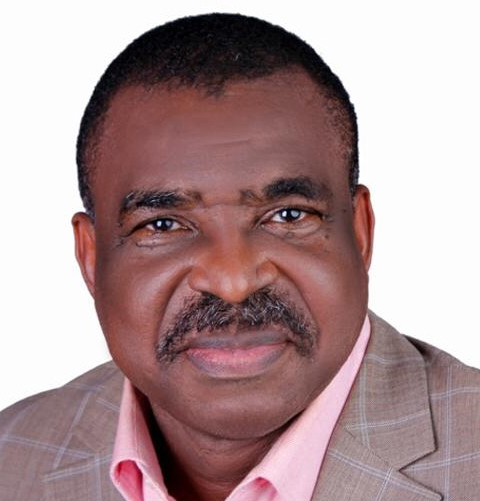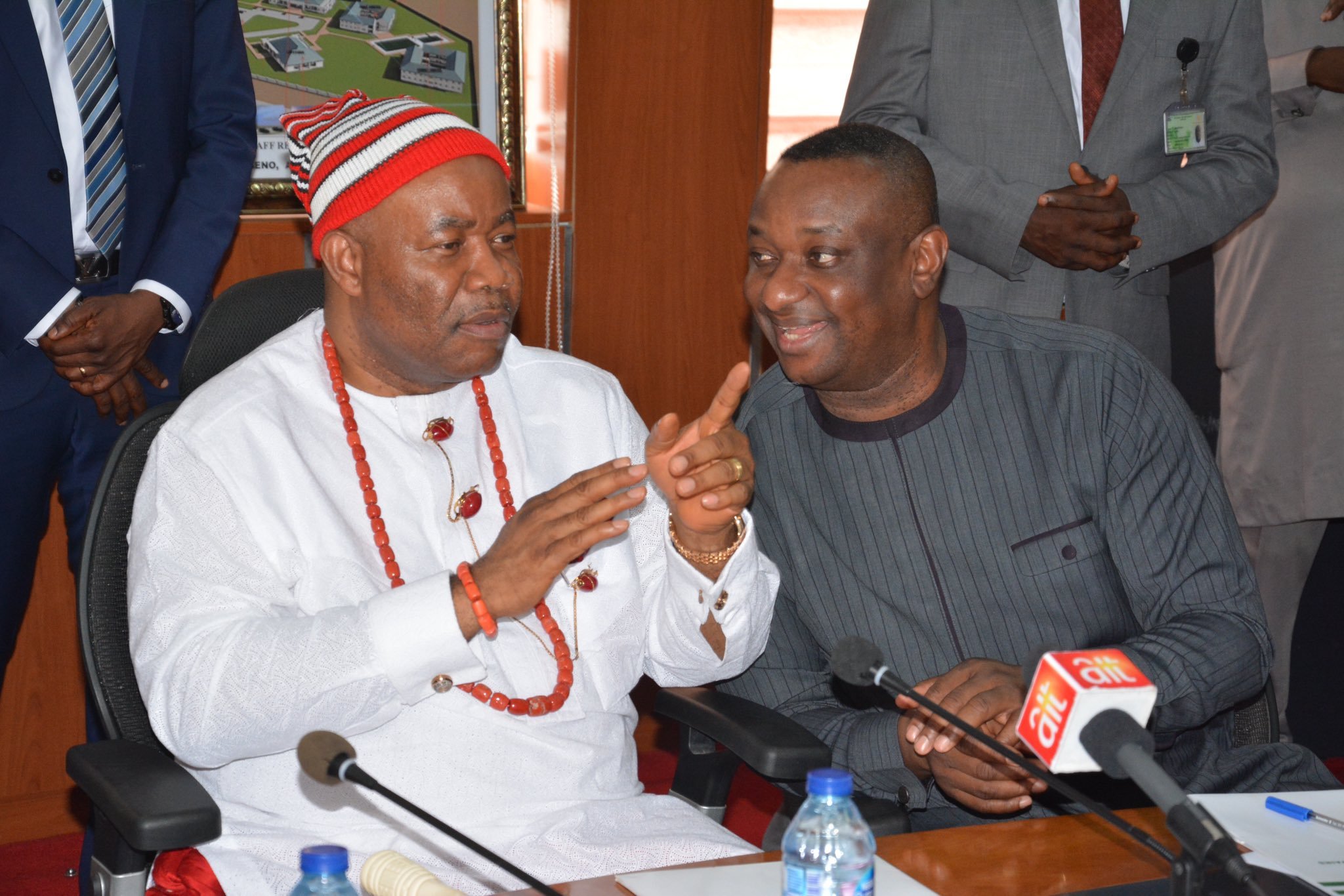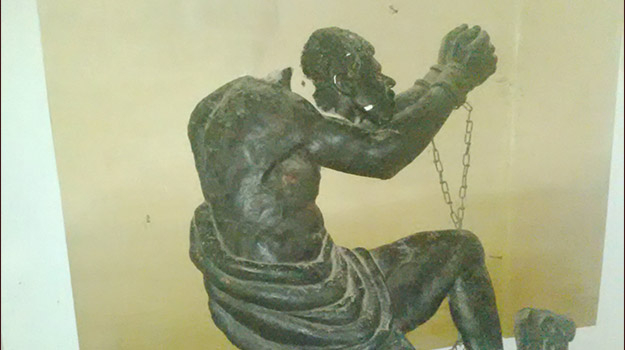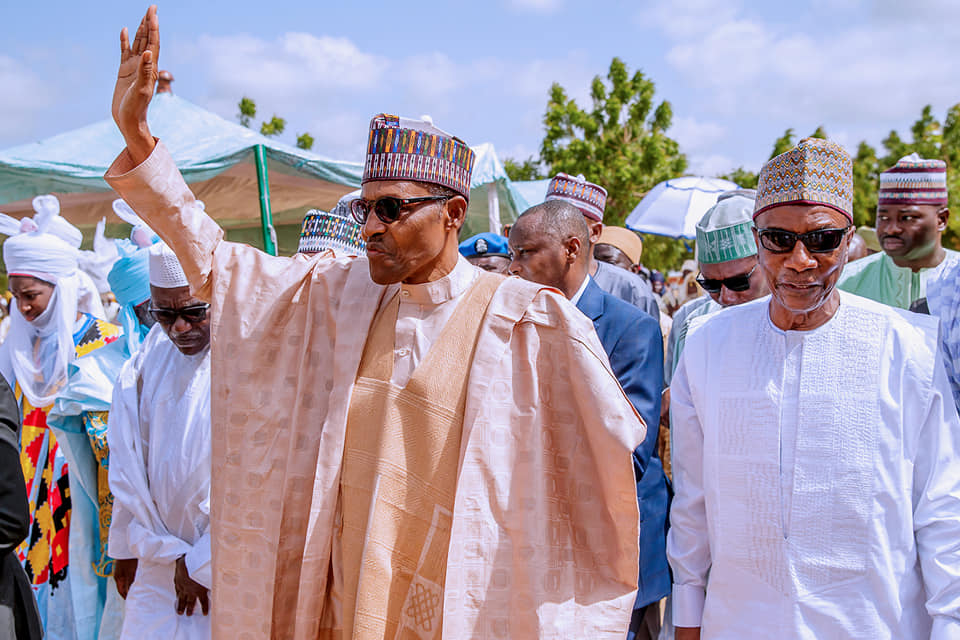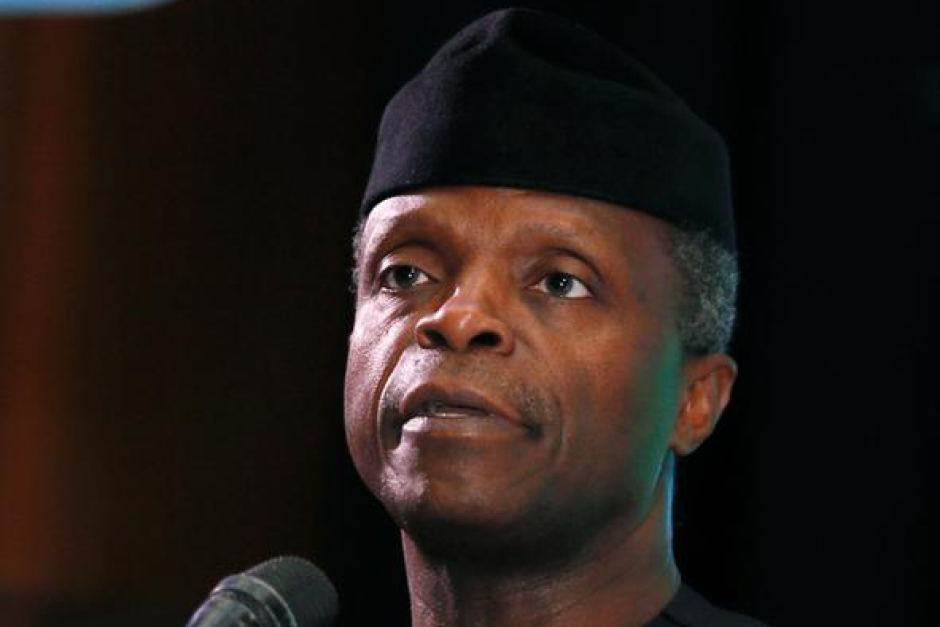After President Muhammadu Buhari released his ministerial list a couple of months ago, pundits went to town with speculations on who might be assigned to each of the 43 ministries.
On August 21 /8/2019, the shadow chasing was over as Mr President assigned portfolios to the ministers.
Apart from the expectations that all the returning ministers would be assigned their original portfolios which manifested, all other speculations have practically turned out to be hot air.
Before proceeding further, let’s back track to President Buhari’s commencement of his journey in the presidential seat of power, Aso Rock villa on May 29,2015.
Advertisement
It may be recalled that after being sworn into office, it took the president a better part of six months before he assembled a cabinet.
After the cabinet was formed and it was populated by those most Nigerians deemed to be mediocre, l wrote and published on both mainstream and online platforms, an article entitled “ Buhari’s Cabinet: Cleanest Dirty Shirts In A Laundry?”.
The article was a sort of assessment of what each of the appointed ministers were going to bring or not bring to the federal executive council table based on the cognate experience of the appointees.
Advertisement
The conclusion then was, given the time and effort put into the selection, the crop of ministers picked did not represent the best that our country could offer from her rich human resources reservoir. Four years after, that assessment could not be said to have been unfair.
And this time around, Nigerians, particularly the opposition have been harping on the integrity of some of the members of the cabinet who they allege are tainted by corruption , having either been indicted by the anti financial crime agency, EFCC or ICPC, the agency established to rein in civil servants who breach extant rules.
It may be recalled that Presidential spokesman, Femi Adesina, had boasted that his boss could not be second guessed.
That was simply because the taciturn Daura born ex army general turned politician had mastered the art of communicating with body language to the extent that it was difficult, if not impossible for mere mortals to decode him.
Advertisement
It was alleged that some Nigerians who were hell bent on reading the president’s mind, had to consult marabouts.
While the veracity of the alleged claim that some desperados consulted the spirits in the dark mystic world for direction may be suspicious, but the unassailable truth is that up to the first two years of holding sway in Aso Rock villa, nobody could really tell if petroleum subsidy would be removed, neither could anyone figure out, if the naira would be devalued.
Neither then petroleum minister lbe Kachikwu, nor central bank Governor, Godwin emefiele or even the venerable chief of staff to the president, mallam Abba kyari could successfully pry into president Buhari’s mind.
In fact, there is a general belief that desperate presidential power watchers who tried vigorously to read president Buhari’s mind during his first tenure in office ended up bending their own minds.
Advertisement
That’s perhaps what happened again this time to those who tried to assign ministerial portfolios to themselves or acolytes before mr president unveiled them last Wednesday.
For obvious reasons, the petroleum ministry and the nominee that has the best cognate experience to man it, received the highest speculative attention .
Advertisement
Amongst those with the cognate experience is Goddy Jeddy Agba, who rose from being special Assistant to petroleum minister under the military dictator, general Sani Abacha’s , Usman Hassan-Hadeija to Group General Manager, crude oil marketing; Clement Agba, who was the Head of Logistics at the International Oil Company, IOC CHEVRON before being called to national duty ; Uche Ogah, founder/CEO of Masters Energy, a successful indigenous oil/gas concern; and Timipre Silver, one time Special Assistant to former minister of petroleum, Edmond Daukoru and later, governor of the oil rich Bayelsa state and home to Oloibiri, where oil was first struck in Nigeria.
Strikingly, the ex governor, Silva was the least mentioned to head the petroleum ministry in the permutations of pundits, while Jeddy-Agba received the highest thumbs up for the job.
Advertisement
But as a proof of President Buhari’s usual enigmatic move, the least expected candidate, Timipre Silva took the crown as he was directed to mount the coveted throne of the petroleum industry. It is believed that Silva clinched the coveted petroleum portfolio owing to his personal relationship with president Buhari which predates his becoming president in 2015.
That’s the reason the myth or notion that since the immediate past minister of state, petroleum was head hunted from the industry, an active oil industry candidate would likely succeed him, ended up like a puff of smoke.
Advertisement
Another barometer applied by most analysts in determining who was to be assigned the various portfolios was the type of question posed by the senators during the screening of the minister designates in the Red Chamber.
But unbeknown to those who felt they were clairvoyant, they were guessing from guesstimate!
The speculators goofed because even though President Buhari’s mouth piece, Femi Adeshina, had ab initio forewarned that trying to second guess his boss would be akin to the outcome in Waiting for Godot -a play by Samuel Beckett, in which two characters, Vladimir and Estragon, wait for the arrival of someone named Godot who never arrives.
If the pundits were more diligent they would have noticed that even the senate president, Ahmed Lawan who had named a date that the upper legislative house would receive the list of ministers from the president, had to backtrack after it became clear to him that he was off the mark or not hitting the bull’seye.
Looking into the eyes of the ‘43 wisemen’ that would help President Buhari in ushering our country into the 21st century as they were being assigned their portfolios in the hallowed chambers of Aso Rock villa, one could see a mixture of gloom and triumph.
Erstwhile super Ministers such as Babatunde Fashola , and Rotimi Amaechi had their status reduced as their behemoth ministries got hived off for others to man. Fashola’s sphere of influence was reduced from Power, Works & Housing portfolio and confined to only Works and Housing , while Amaechi’s sphere of power was also restricted to only Transport ministry, with Aviation which was hitherto under his wings, upgraded to a full independent ministry for Hadi Sirika, who was a junior minister in the last dispensation. Sirika, representing Katsina state is now a full fledged minister (some say for filial reasons) as he is a ‘blue eye prince’ in Aso Rock villa.
With the narrative above , it’s easy to figure out those who had glints in their eyes and those who were glum and even grumpy as president Buhari invited them to append their signatures to their names in the register of ministers.
Nothing illustrates the rattling of the ministers after President Buhari allocated the portfolios more than the comment by Rauf Aregbesola, ex governor of Osun state who was given the mandate to head the Internal Affairs ministry.
The one time commissioner for works in Lagos state and immediate past governor of Osun state, reportedly told the staff of the ministry of Internal Affairs when he took over “ my relationship with the ministry is distant. What l know about the ministry is what l read in the newspapers”
Although all the states in the federation were represented in the cabinet as stipulated in the 1999 constitution, some states gained while others lost. For instance Kano and Kaduna got two full fledged ministers each while Bauchi, lagos, Edo and Anambra states also got two ministers apiece which is one more than they got in the last dispensation.
Delta state lost its prime position of being home to the minister of state, petroleum resources, to being the home of the minister of state, Niger Delta ministry. In a similar fashion, Benue state got demoted from being the homestead of a full fledged minister of agriculture which was fitting since the state is a bread basket of Nigeria, to minister of special duties which is a sort of amorphous function.
Also, with the number of ministries increased by 5 to 43, president Buhari seems to no longer hold the view that govt ministries and departments were too many, unwieldy and constitute a burden on the nation’s treasury, which was the why he pruned down the number inherited from his predecessor in 2015.
One wonders what has changed now that has informed president Buhari’s decision to appoint more ministers and establish more ministries, particularly at a time time that concerns are being raised about government’s lean resources prompting the chief of staff to the president, Abba Kyari, to query the chairman of Federal Inland Revenue Service, FIRS, Tunde Fowler.
Unarguably, the appointments that would certainly resonate amongst the long suffering Niger Deltans is the decision to assign two Niger delta politicians, not only the petroleum ministry, but also the Niger Delta ministry which is now being manned by Godswill Akpabio, the immediate past Governor of another oil/gas rich state, Akwa Ibom.
The initiative in my reckoning is a masterstroke that would enable the federal govt achieve a further consolidation of the peace which former President Umar Yar’Adua’s introduction of Amnesty program for ex militants brought to the erstwhile volatile region. The ministry has under its purview, (apart from the Amnesty agency given the mandate to equip the restive youths with skills and education) another development agency,NDDC that was also set up to promote infrastructure development in the environmentally devastated oil/gas producing region.
Uncannily and in effect, president Buhari has once more proven to be a maverick by appointing Timipre Silva and Godswill Akpabio, two ex-governors of the most prolific oil bearing states to head both the petroleum and Niger Delta ministries. And as such he has placed the future of the Niger Delta squarely in the hands of Niger Deltans.
I’m convinced that this political masterstroke would consolidate the successes so far recorded in the bid to banish restiveness from the region which is the goose that lays the golden egg.
Undoubtedly, the Niger delta people would be assuaged by president Buhari’s considerate gesture.
In an article titled “Insurgency & Banditry: How The Nigerian Military Can Win The Peace” published widely in Punch Newspaper and online media platforms earlier this week, l suggested that Aso Rock authorities should replicate the Amnesty concept which is essentially a social re-engineering strategy in the management of the crisis arising from the separatist movement by IPOB in the southern part of our country and the religious insurgency and herdsmen banditry ravaging the north, particularly the north eastern part of the nation.
The peace now reigning in the Niger delta can only be attributed to the efficacy of social engineering as opposed to the resort to the use of sheer force as evidenced by the deployment of the military with arms and ammunition to the crisis areas across the country resulting in the alarming rate of human carnage in Nigeria .
In conclusion, l would like to appeal once more to Aso Rock villa that the social engineering model that has so far worked in the Niger delta should be applied in solving the Boko Haram and herdsman crisis in the north and the separatist movement in the south east.
If that is done, and the use of military force becomes secondary as opposed to being the primary solution to social upheavals in a democratic setting, President Buhari would have redefined his presidency in a very significant manner.
Onyibe, a development strategist, alumnus of the Fletcher School of Law and Diplomacy, Tufts University, Massachusetts, USA and former commissioner in Delta State sent this piece from Abuja.
Views expressed by contributors are strictly personal and not of TheCable.
Add a comment
